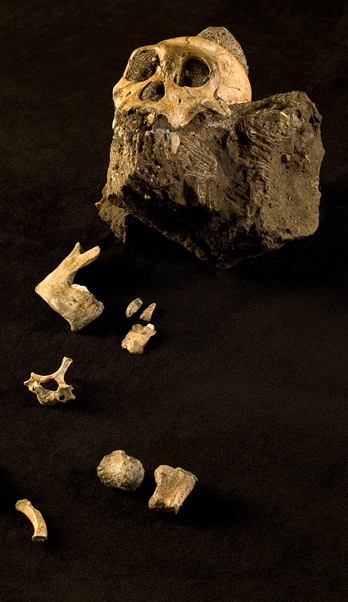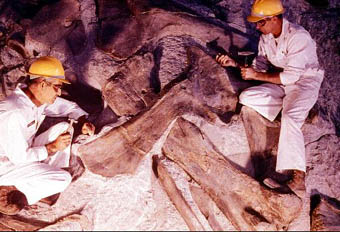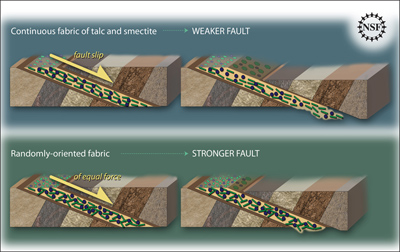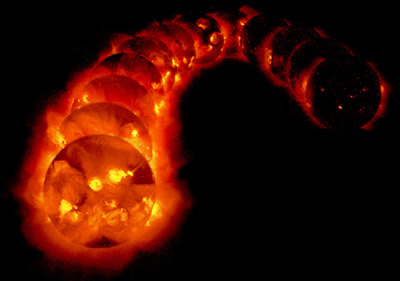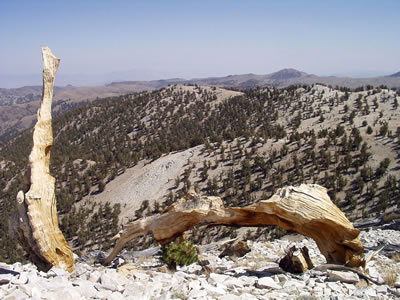Click on image for full size
Courtesy of Wits University
Geologists Uncover Major Ancient Human Ancestor in South Africa
Scientists have discovered two fossil skeletons of an ancient human ancestor – a species related to humans that had never been found before. The fossils, a young male and an adult female, formed almost two million years ago. They were found near Johannesburg, South Africa.
This relative of humans, gorillas, chimpanzees and orangutans is a species that has never been found before. From its bones, it appears to be somewhat like the more ape-like species that had long arms and small brains. But the bones also show that it was somewhat like humans and could walk upright. Because this species appear to be both ape-like and humans-like, researchers believe these fossils may be species related to both groups.
To get a better idea of how these human ancestors lived in the area and identify the best places to look for more fossils, a team of scientists studied the geology in the area where the fossils were found.
They found that this young male and adult female died around the same time – about two million years ago. Their bodies were covered with a landslide of sand and other sediments. There were also fossils of many other animals in the rocks that formed from the landslide, including saber-tooth cats, hyena, wild dog, wildcat, kudu, horse and other smaller animals. They were all in an ancient cave that was filled with the landslide of sediments.
"We believe the cave originally was deep and only accessible through vertical entrance ways, which made it hard for animals to escape once they became trapped," said Daniel Farber an Earth scientist who led the research.


